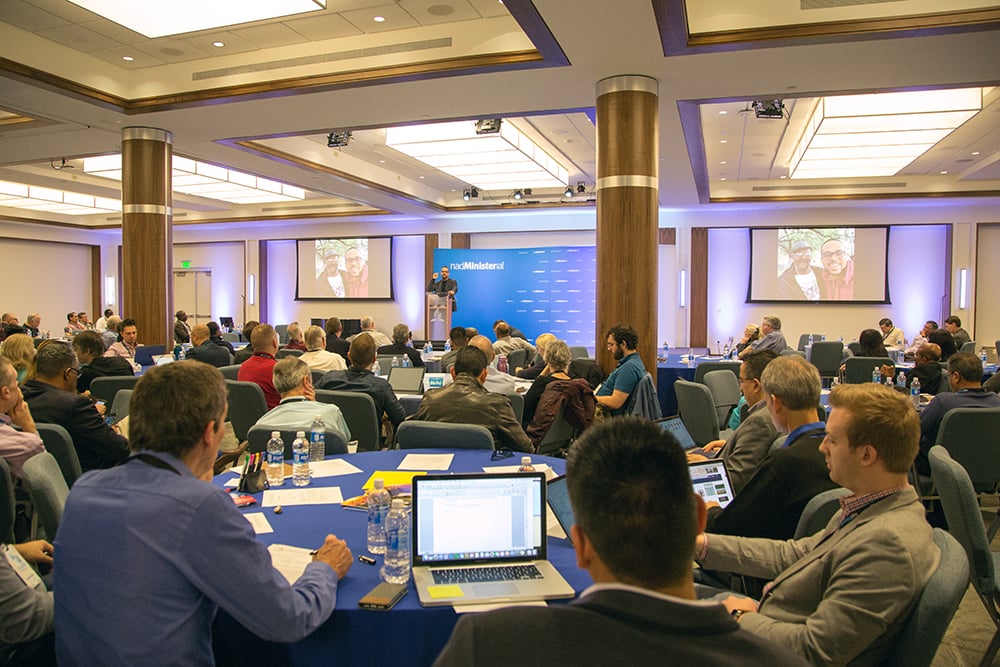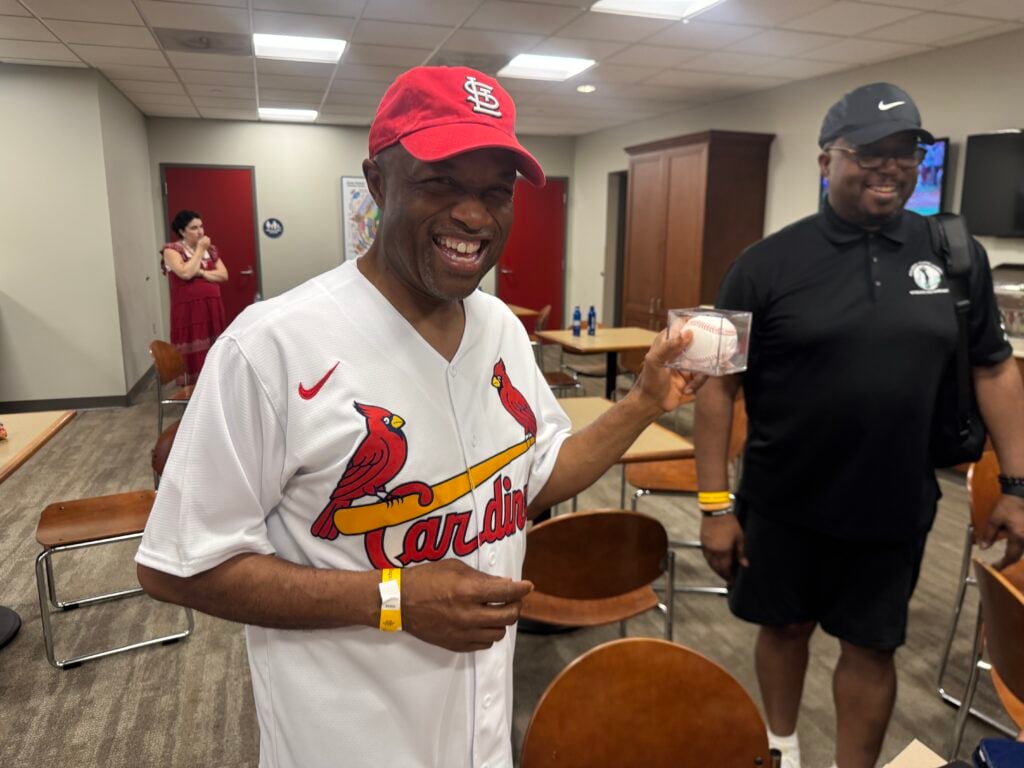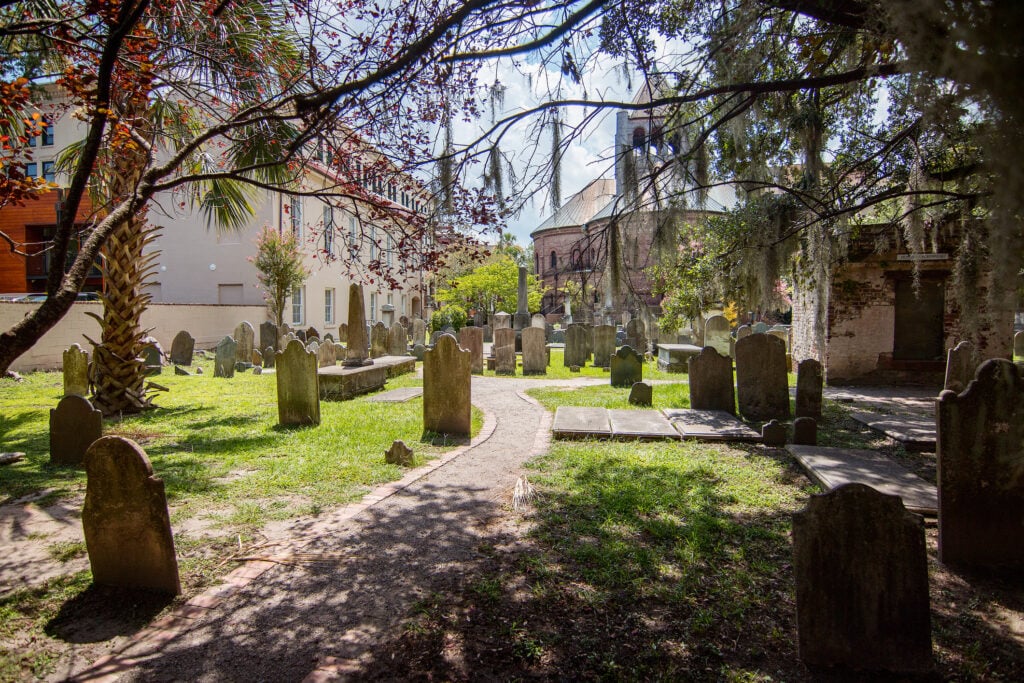At eHuddle in Orlando, I sat in anticipation, wondering if I’d hear anything new. After a while I started to wonder if I’d hear anything old. When someone got up and started telling about how he got 2,000 people to the front lawn of his church with a helicopter dropping Easter eggs, I knew that we were in new territory.
The world that we live in is a changing world. We shouldn’t be content with where we are because it will keep changing. A major shift has occurred in this digital age. We’ve all gone from texting at the game to texting at the dinner table.
Where We Were
Fundamentally, it’s a different world. In order for us to understand where the challenges lie, we need to understand where we’ve come from. We need to understand that there were people in this church who dreamt huge dreams. I remember when we were reaching 4 and 5 million members, and we thought that was pretty good. Today, we have about 20 million members—and 20 million isn’t where membership needs to be.
There were people who helped to shaped the church by the name of William Fagal and George Vandemann and H.M.S Richards. I recently was at one of our colleges, talking to a group of young people, and I mentioned the name H.M.S. Richards. The person looked at me and said “Well, who is that?” We need to not forget but, rather, remember the dreams and the visions, and the exploitation of technology that occurred in the past. To forget about foundations is foolish.
There is a new building in Shanghai, China. A 13-story building that toppled over, killing one person. No one has moved in yet. The builders had piled the dirt from the new building behind the building that was already built, and when they dug out for the next new building in front it things became unstable. Then the rains came and the pressure from the water and dirt knocked the building over. If you look at a picture of the building, you’ll see on the far left all those little steel pieces sticking out of the ruined foundation. Forget about the foundation and the structure can topple. We cannot throw out everything as we explore the new.
Look Forward
While we keep the past in mind we need to recognize a new reality—and Jesus helps us with this. We need to look forward. There is a common-sense element to the idea of creating new things.
If you read carefully the words of Jesus, you discover that He urges newness. He urges new wine skins (Matt. 9:17; Mark 2:22). He doesn’t say abandon the old, but He says try the new.
This quote, sometimes attributed to Henry Ford, is apt: “If I had asked people what they wanted they would have said ‘faster horses.’” It takes time, but change is not only inevitable, it is possible and it may be mediated in the name of Jesus. It will be, can be, should be good.
We can get into a rut thinking that if we just try a little harder. It is possible for us to get myopic. It’s possible for us to lose sight of what we really are to be about. It is possible for us to face a world that is rapidly changing.
Think about the Me Too movement. Think about the Black Lives Matter movement. Think about the reality that has been shaped by an event in Florida this past February and how 17 dead children lying in a high school will change this nation and possibly the world. Not a week after the tragic shooting, on the way to work I heard 16-year-old kid say on the radio, “The adults have let us down.”
What about our church? What about the needs of the church? Is it true, is it possible, that in this church young people could look at us right in the face and say, “The adults have let us down”? …
There will be a movement here, I believe. The world that we live in today is not like the world of yesterday. We used to be the purveyors of the knowledge. Today, at best, we can facilitate community. So, we must look forward.

Commit to the Lord
“Commit to the Lord whatever you do and your plans will succeed” (Proverbs 16:3). We must lay our plans before the Lord. This is, after all, a spiritual enterprise. This is not about a job, or a career, or about an organization. The plan of salvation is not about the Seventh-day Adventist Church. But the Seventh-day Adventist Church has been given the privilege of being a facilitator of the plan that God has for this planet. It’s about God’s plan to redeem human beings.
How do we think through the world that we live in? Look at the issues that confront us and how may we speak effectively to our world for Jesus Christ. Think practically. And, just do it.
It takes courage to do traditional evangelism. It takes courage to introduce new elements in terms of how we reach out. It takes courage.
And the time has come when we ought to quit worrying about someone complaining because they will always complain. Complaints and complainers will always be with us. And if you hesitate, or you drop an initiative that God has laid on your heart because you’re afraid, then you’d be better off golfing.
Get Ready
This is about the souls of human beings whom Jesus came to give His life for, and God has called you for the special purpose of conveying that. And it doesn’t matter where you are on planet Earth. It doesn’t matter whether you’re in Australia or Canada, the United States or Bermuda, or Guam, Micronesia. Just do it. Don’t be afraid. Move ahead.
Evangelism continues to be the life blood of the church. We will never do away with it. It’s just that it may morph. Get ready.
— Daniel Jackson is the president of the Seventh-day Adventist Church in North America; this article is based on Jackson’s address at the 2018 eHuddle this past February.




